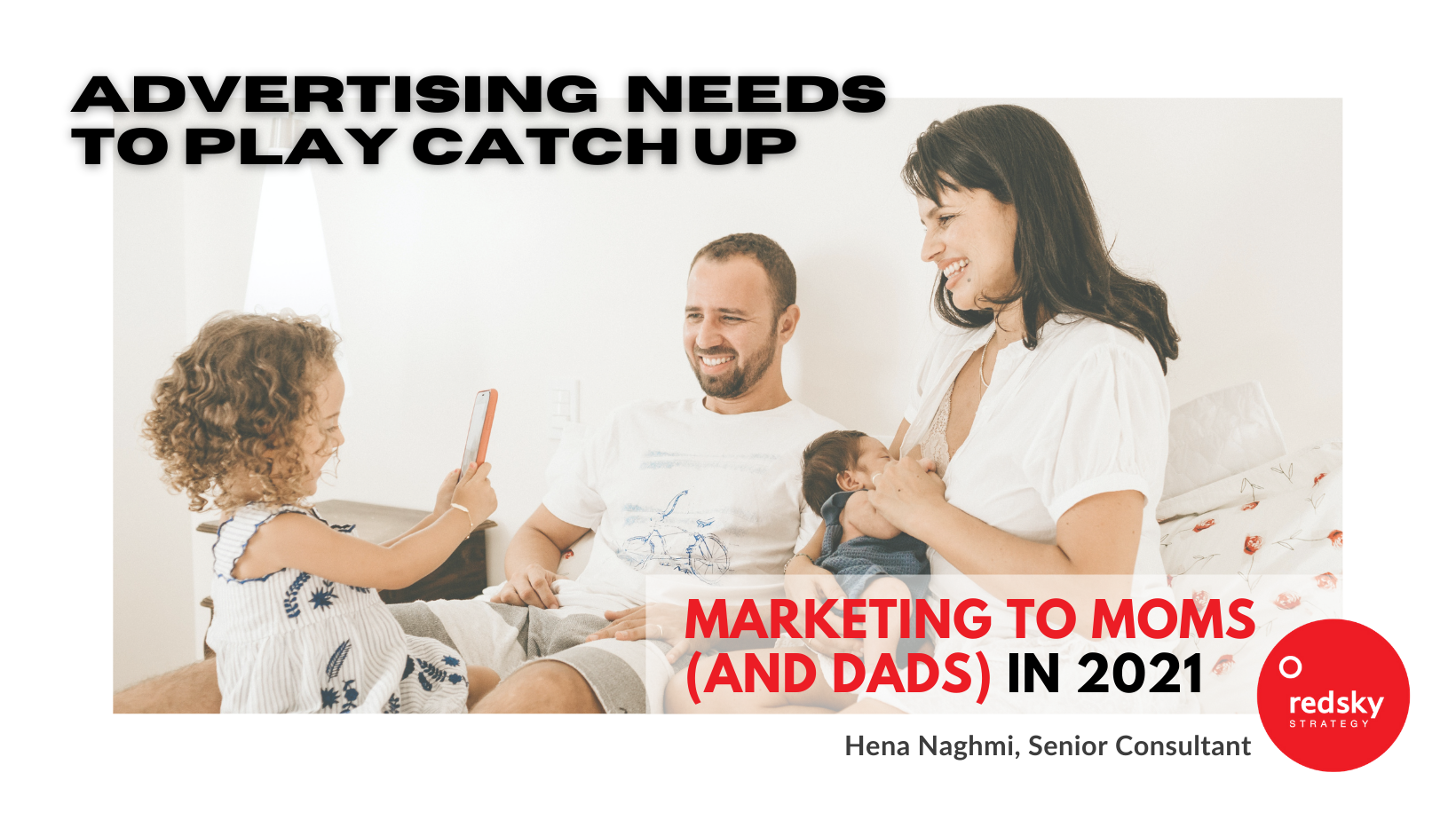News
Marketing to Millenial Parents
Millennial parents are vocal about their desire for a shift in ads targeted towards moms and dads. Now it’s time for advertising companies (and brands) to listen and respond.
Alexa: Here’s your reminder – Laura says the teething ring is in the freezer.
Alexa: Laura scheduled a playdate for 3pm.
Alexa: I’m reminding you – Laura loves you and you’re doing a great job.
Does the above interaction from a recent Amazon Alexa ad ring a bell? Perhaps this ad is further proof of the impending robot apocalypse. Will our smart devices will become more capable parents than us? Will this result in the end of humans’ reproductive function and reduce us to simple vessels for the robot agenda?
The more reasonable among us may see a different issue with this overly sentimental ad: Mainstream marketing continues to play on outdated parenting stereotypes about the roles of mothers and fathers. Millenial parents say it’s 2021, and time to move on.

How has the depiction of parenthood evolved?
Models of motherhood have evolved in the US. From the 1950s housewife (Picture: The perfect woman who managed all of the household affairs in a cute dress and heels) to the 1980s working mother (Picture: the boss at work and in the home), we’re happy to say we’ve evolved. In the 2000s, mothers more empowered to choose their own paths and ask for help. But while the amount of labor delegated to fathers increased, what remained consistent was the mothers’ role as the manager of the house – the delegator.
The modern parenting shift: It’s time to march forward.
The above image maintained its place in our culture until about 5 years ago, when older Millennials began having kids. These new parents who grew up watching their mothers trying to have it all and do it all – and stay sane while doing it – began to shift the paradigm. How, you ask?
Millennial parents have written think pieces galore about the value of sharing the emotional burden of labor. And thus, the next big shift in the parenting paradigm began, reallocating the managerial (and emotional) burden that since the dawn of time has fallen on women. This idea of sharing the labor of parenthood completely shatters the current predominant stereotype in the media. In other words, we’re past the image of the mother as the boss, the manager, the “buck stops here” lady. We once again see media and marketing needing to play catch-up to meet us where we are.
So, what do modern (millennial) parents actually want to see?
It’s no secret (except maybe to the advertising industry) that millennial parents are pushing for more balanced co-parenting relationships and better depictions of that in the media. According to a recent study by Kraft Heinz, 82% of Millennial parents want ads to target both mothers and fathers equally. And it’s not just wishful thinking. It’s representative of real dynamic shifts in co-parenting relationships.
As fathers begin to share the managerial role in the household, we see many doing so in a way that makes sense to them – online shopping. It seems to surprise many marketers, but it turns out that men, especially fathers, are the most avid online shoppers on sites like Amazon. Dads have always been the ones that to be targeted for quirky new gadgets and gizmos. But dads have taken on a broader role than that. They are increasingly taking on the management of stocking up the regular household supplies, shopping for everything from groceries to diapers.

Here’s a real-life example of target marketing gone wrong.
If further proof is needed, take my husband for example. He and I are brand new millennial parents to a beautiful 4-month old resource-suck. We are exploring parenthood together, but when it comes to managing various aspects of our new shared role, we’ve fallen into some comfortable divisions. I tend to read up on the milestones, changes, and all the things we’ll be seeing our kid do in the next year or so. My husband spends his time researching “best Montessori style toys for 4-month old.”
He also does most of the purchasing when it comes to new stuff and the staples. In fact, I can’t remember the last time I bought diapers, wipes, or toilet paper. He keeps our house fully stocked on the essentials, and seamlessly I should add. I’ve never had to resort to using paper towels for the baby… or myself for that matter. So why is it that he almost never gets targeted with baby ads on social media, while I am bombarded with them? I’m not exaggerating.
In preparation for this article, he and I sat down and scrolled Facebook together to categorize the types of ads that popped up. Of the 10 ads we counted on each of our phones, only 1 of his was baby-related, while an astonishing 9 out of 10 of mine were. And we don’t have our search history to blame for that – I already established that he’s the one researching and purchasing the baby things online.
Why hasn’t the advertising industry caught up on “new” parenting roles?
It seems that marketers are not sold on the idea of a dad who manages household purchases. The image of a research-obsessed, overly-protective mother with way too much time on her hands is so sticky that we’re having a tough time ripping off that bandaid.
Here at Redsky Strategy, we’ve conducted research that validates the shop-happy dad. Somehow, brands are still hesitant to move away from mom-centric marketing. And maybe for good reason. The demographic has proven to be one of the best consumer groups for years, representing the core of many brands’ marketing strategies. But as consumers evolve their perception of what it means to be a millennial parent in 2021, it’s time for behemoth brands like Amazon, (brands that have the power to shape dialogues) to take a bold step towards acknowledging new power-sharing structures in the American household.
What can my brand do to adapt and evolve?
We love supporting bold moves. That being said, we don’t just recommend bold moves for the sake of being bold. We encourage our clients to adapt to new insights in order to better serve their end customer. Millennial parents are telling us they’re changing the way things are done. The ask is there, and our job is to respond with an answer. RedSky is here to do the leg work and research to unearth the precise insights that will help your brand respond in a way that works uniquely for your organization.
If you’re interested in hearing more about how we can help you identify key insights to better target Millennial parents and reach marketing excellence in 2021, please reach out. Our team has the skills, the curiosity, and a few new Millennial parents to boot.

